What kind of hearing aids would work best for me?
Understanding hearing aids can be challenging, but you don’t have to do it alone. We’re here to provide you with accurate information, personalized care, and
HearCare Audiology in Northeast Indiana offers exceptional hearing health care with premium hearing technology.
Our team of hearing healthcare professionals are well-equipped with the latest hearing technology so you can always be ready to have THE BEST conversations of your life.
We work with all major hearing aid manufacturers to provide patients with the best available options in the industry.
HearCare Audiology offers a vast range of services from expert hearing assessment, treatment and counseling to find the optimal fit for each patient’s unique audiological profile.
HearCare Audiology has five office locations ensuring that local residents in the Northeast Indiana area can have access to premium hearing health care.
The HearCare Audiology team aims to provide world-class hearing care for patients of all ages, zeroing in on specific hearing needs and concerns. From onsite evaluations, hearing aid fitting, hearing aid selection, and providing hearing protection, HearCare Indiana gives everyone a chance to experience better hearing.
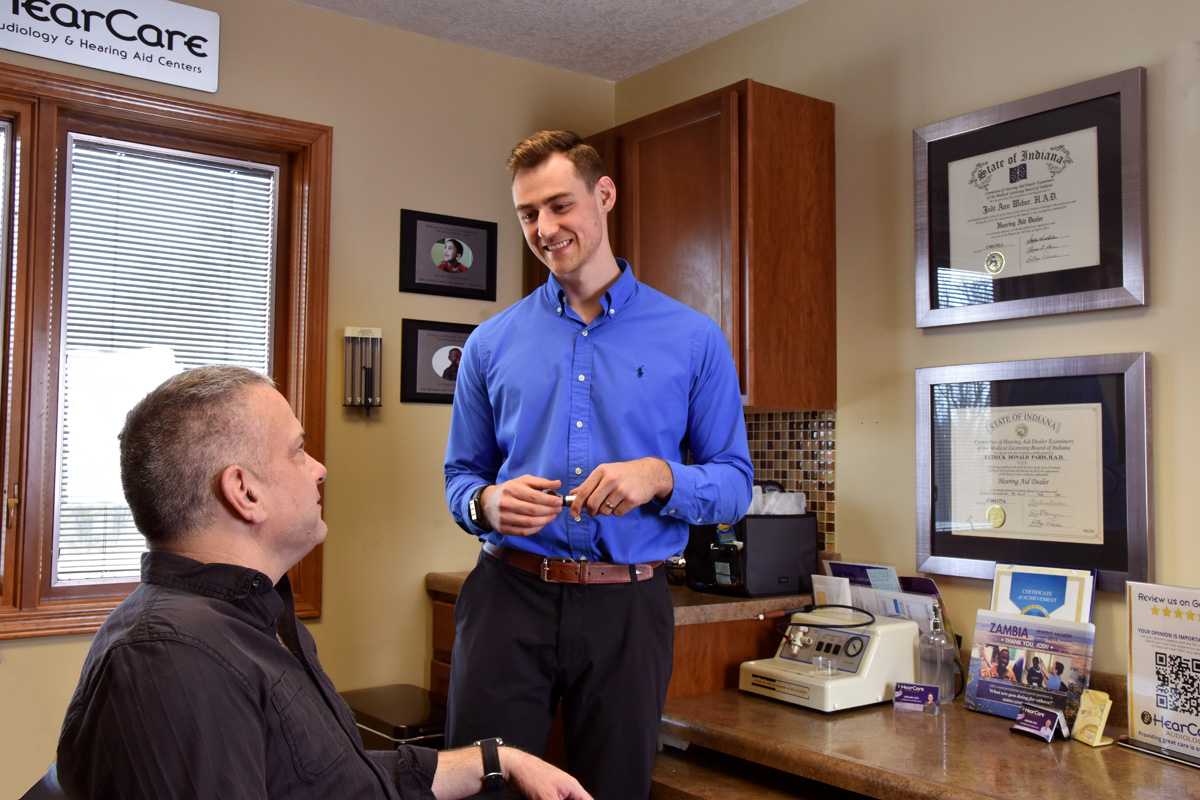
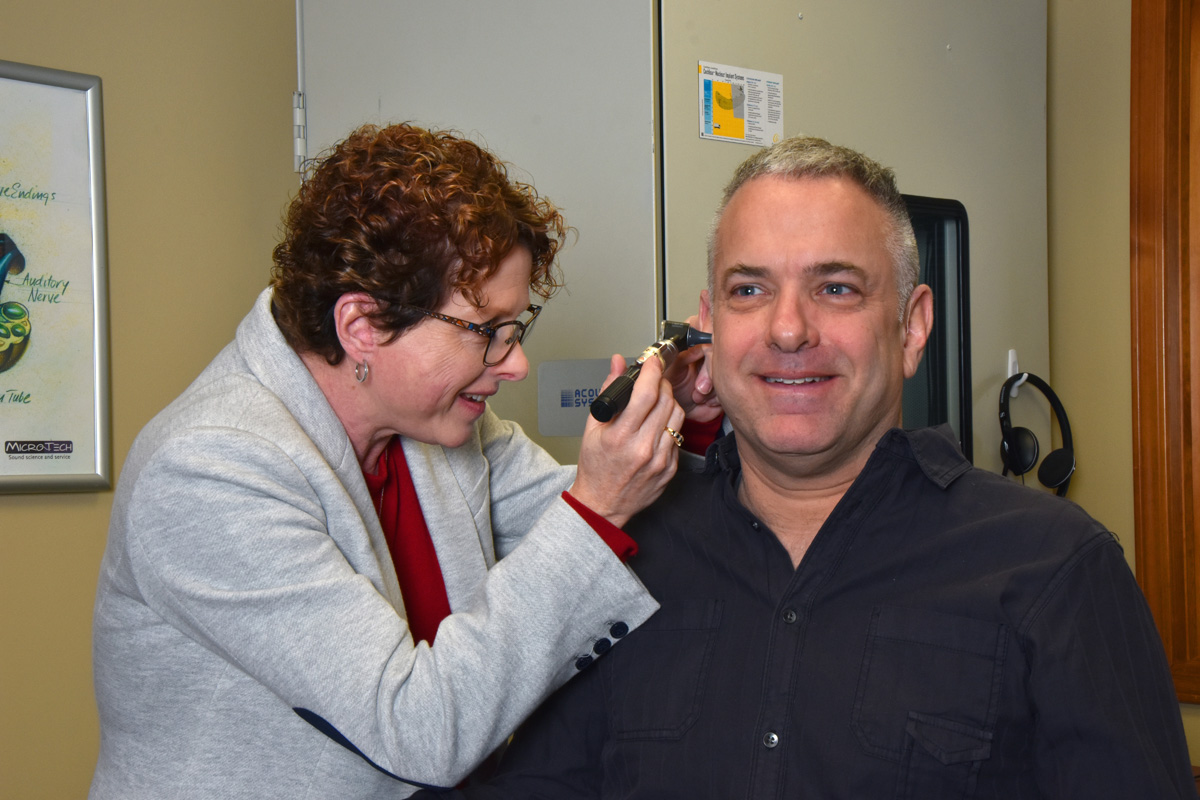
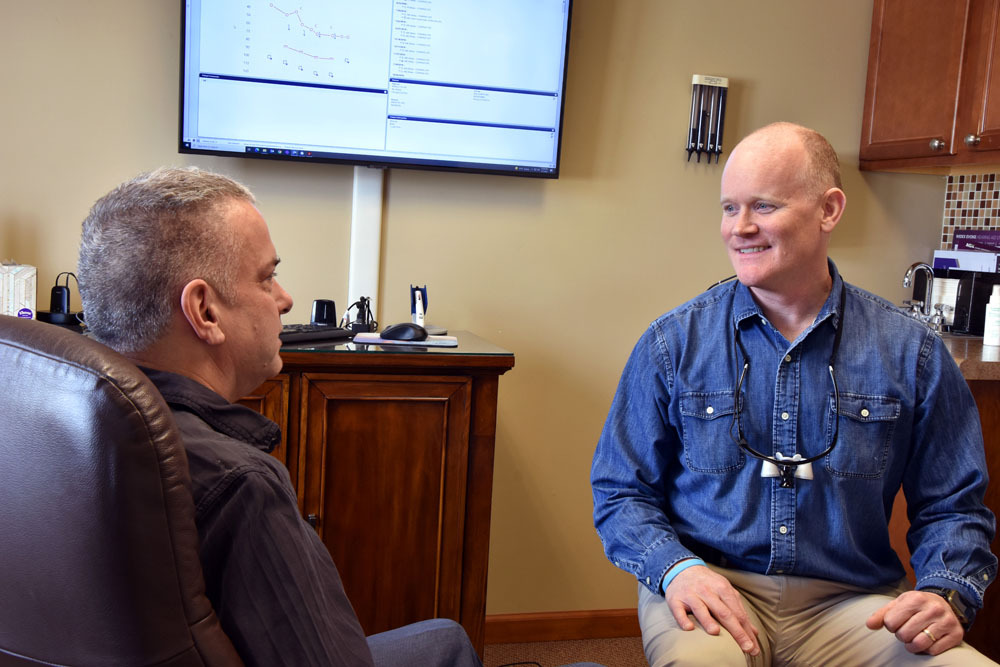
Our services at HearCare Audiology do not end after the final hearing aid fitting. We have found people enjoy the most success with better hearing when they visit us at least twice a year for follow-up visits. During these appointments, we can discuss any possible concerns and ensure the hearing aids are in optimum working order.
Assistive listening devices, otherwise known as ALDs, help a user function better in daily situations by connecting many devices directly to their hearing aids. ALDs can be used solo or with hearing aids. Either way, they can make hearing easier by reducing the fatigue of listening. Common uses of assistive listening devices include making the television, telephone or home alarms more audible or boosting the power of personal hearing aids for better hearing in noisy scenarios.
Ear wax is a natural body secretion. Too much earwax can end up clogging your ears and interfere with normal hearing processes. People who wear hearing aids are vulnerable to ear wax blockage.
We discourage dealing with ear wax removal by yourself because impacted ear wax may be pushed deeper into the canal, causing more troubles for you in the form of an ear infection, hearing loss or tinnitus. When dealing with stubborn ear wax, it is best to leave it to the professionals who have the proper equipment to safely carry out ear wax removal procedures. HearCare Audiology offers professional ear wax removal services in Indiana. Choose from our six locations and visit the office nearest to you.
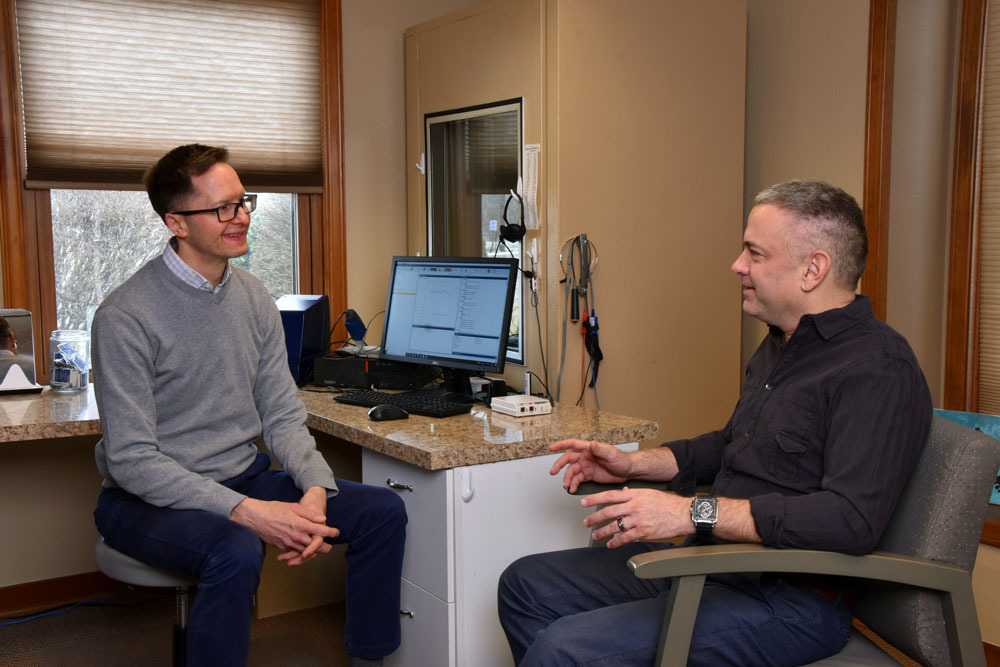
HearCare Audiology Indiana has been in the hearing health industry for more than 20 years. Founded by Ken and Nora Stewart, HearCare Audiology has continually provided the local community with exceptional, world-class hearing healthcare like no other.

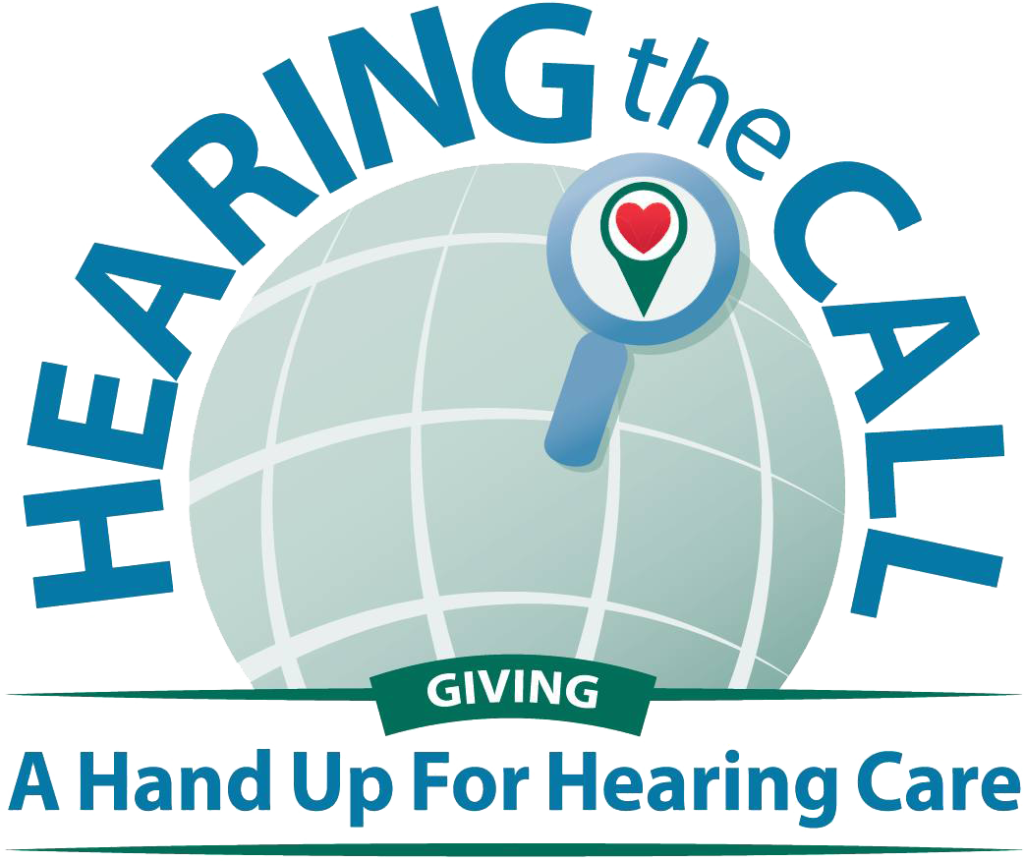
We believe in the virtue of giving back to the community, and GiveHear is the brainchild non-profit organization of Ken and Nora Stewart.
GiveHear is a local income-based non-profit organization, the FIRST of its kind in the region, offering high-quality hearing services in the Fort Wayne area.
We try to extend our services as much as we can. We are more than just a clinic that provides hearing tests, dispenses fitting aids, offers earwax removal services and tinnitus management. Ken and Nora Stewart, together with the whole HearCare Audiology family, promise our patients the highest level of care and professionalism to have you enjoy the best possible level of communication to give you a better quality of life. We treat our patients just like how we want to be treated if we were in their shoes – just like family.
Understanding hearing aids can be challenging, but you don’t have to do it alone. We’re here to provide you with accurate information, personalized care, and
Managing hearing loss is challenging, but you don’t have to do it alone. We’re here to provide you with accurate information, personalized care, and support
Managing tinnitus is challenging, but you don’t have to do it alone. We’re here to provide you with accurate information, personalized care, and support every
Understanding hearing tests can be challenging, but you don’t have to do it alone. We’re here to provide you with accurate information, personalized care, and
You can self-refer to an audiologist if you are ready to pay for audiology treatments out of pocket. If you self-refer, there is no need to contact a doctor. If you want to utilize your insurance to pay for the consultation, testing, and other expenses, you must first get a recommendation from a doctor.
All diagnostic audiological treatments funded by Medicare require a physician’s recommendation. Furthermore, the primary cause for the referral determines the purpose of the examination. Each diagnostic technique or therapy must be justified by a relevant symptom, sign, or complaint. If you believe you require a hearing test, your doctor may send you to a hearing specialist (audiologist) who can perform the test.
A hearing aid specialist may perform hearing tests and choose the most suitable hearing aid for a specific client’s hearing loss. Audiologists can assess and diagnose a larger range of hearing and balance issues. Audiologists are medical practitioners who investigate the science of hearing loss and can pinpoint the source. Hearing aid specialists are only able to fit hearing aids and perform hearing tests.
Hearing aid dispensers (HADs) are fully certified experts who can test hearing and provide hearing aid after-care services. To employ hearing technology, hearing aid dispensers must be qualified and licensed. Meanwhile, audiologists may be able to test and diagnose a wider spectrum of hearing and balance issues. For medically relevant therapies such as balance issues, noise-induced hearing loss, and earwax impactions, an audiologist may be more effective. Both have the necessary training to install, adjust, maintain, clean, and repair hearing aids.